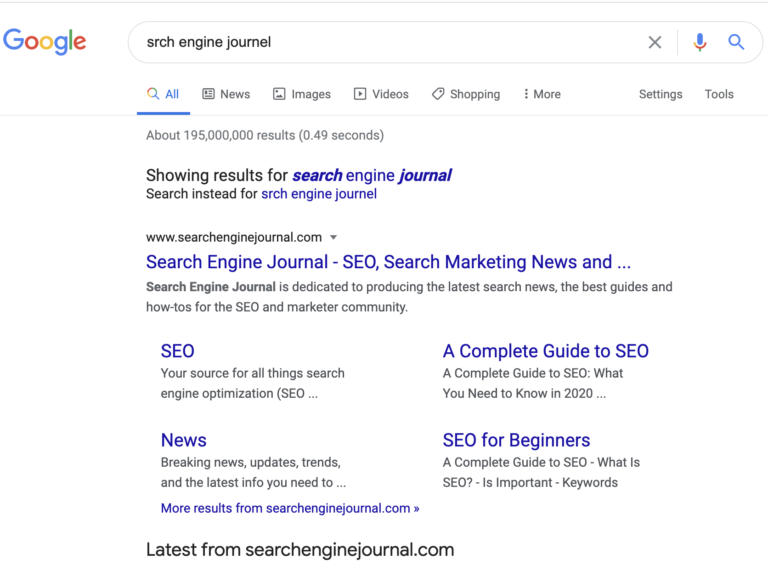Today’s Ask an SEO question comes from Frank in Phoenix. Frank asks:
Targeting misspelled keywords used to be a common strategy in search engine optimization. Is this still a valid strategy in your opinion? Or is it super outdated? Is there any reason to target misspellings today, or would it be a waste of time? Could it hurt SEO in anyway?
Great question, Frank.
I love to talk about the evolution of SEO from tricks and tweaks to real marketing, and this is a great example of that.
In the pre-Google days of SEO, search was really simple.
The algorithms weren’t super-advanced, and were basically just a fancy way of saying “give me all the documents that contain this exact phrase, and order them by how many times it appears.”
The search engines even gave us a meta keywords tag so we could tell them what keywords the page was relevant for.
As you can imagine, we SEO professionals abused the hell out of that.
No matter what a website was about, it wasn’t uncommon to see “Britney Spears” show up in their meta keywords tag.
Seriously it was such a big volume (and heavily spammed) search term that it’s literally one of the examples Google uses when they talk about misspellings and understanding them today (more on that in a minute.)
Because of all that abuse by SEO pros, and because of huge advancements in the fields of information retrieval and NLP, no reputable search engine uses meta keywords anymore.
Similarly, search engines have gotten better at understanding what words mean.
Here’s an example from a Google talk a few years ago where they talk about how they try to understand misspellings and what word the user really meant.
You guessed it, the examples are Britney Spears.

We don’t need to go into extreme detail of how these types of algorithms work, but it’s pretty clear that Google (and Microsoft Bing) know that all of these keyword variations are actually “britney spears.”
If you’re curious about what words are most often misspelled in each state, Google has shared that data too.
Are these America's most misspelled words? Check out the top 'how to spell' searches by state, just in time for the #spellingbee 2018 finals.#dataviz #maps pic.twitter.com/uTb7ynYcv5
— GoogleTrends (@GoogleTrends) May 29, 2018
There used to be a time where we could gain some traffic by capitalizing on common misspellings.
I’m sure you can still see some old SEO articles about this showing up in Google, and I’m sure you can even find some SEO pros recommending it – but that’s no longer the case.
These days, Google and Microsoft Bing are smart enough to recognize the misspelling, convert it to the right word, and then show you results for that word.
We can see that in the search results when we spell things wrong.
Google actually tells us they’re showing results for the properly spelled term.

If you actually want to search for a misspelling now, you have to click the link google gives you, (or modify some parameters in the URL).
But wait there’s more…
Misspellings Might Even Hurt You
These days, the script has flipped a bit on misspellings.
As Google and Microsoft Bing look to reward higher quality websites, there’s some theory in the SEO community that misspellings can be seen as a low-quality signal and may actually harm your site.
I wouldn’t take the risk.
Editor’s note: Ask an SEO is a weekly SEO advice column written by some of the industry’s top SEO experts, who have been hand-picked by Search Engine Journal. Got a question about SEO? Fill out our form. You might see your answer in the next #AskanSEO post!
More Resources:
- SEO Keywords: What They Are & Why They’re Important
- How to Do Keyword Research for SEO: A Simple Step-by-Step Guide
- A Complete Guide to SEO
Image Credits
All screenshots taken by author, November 2020





